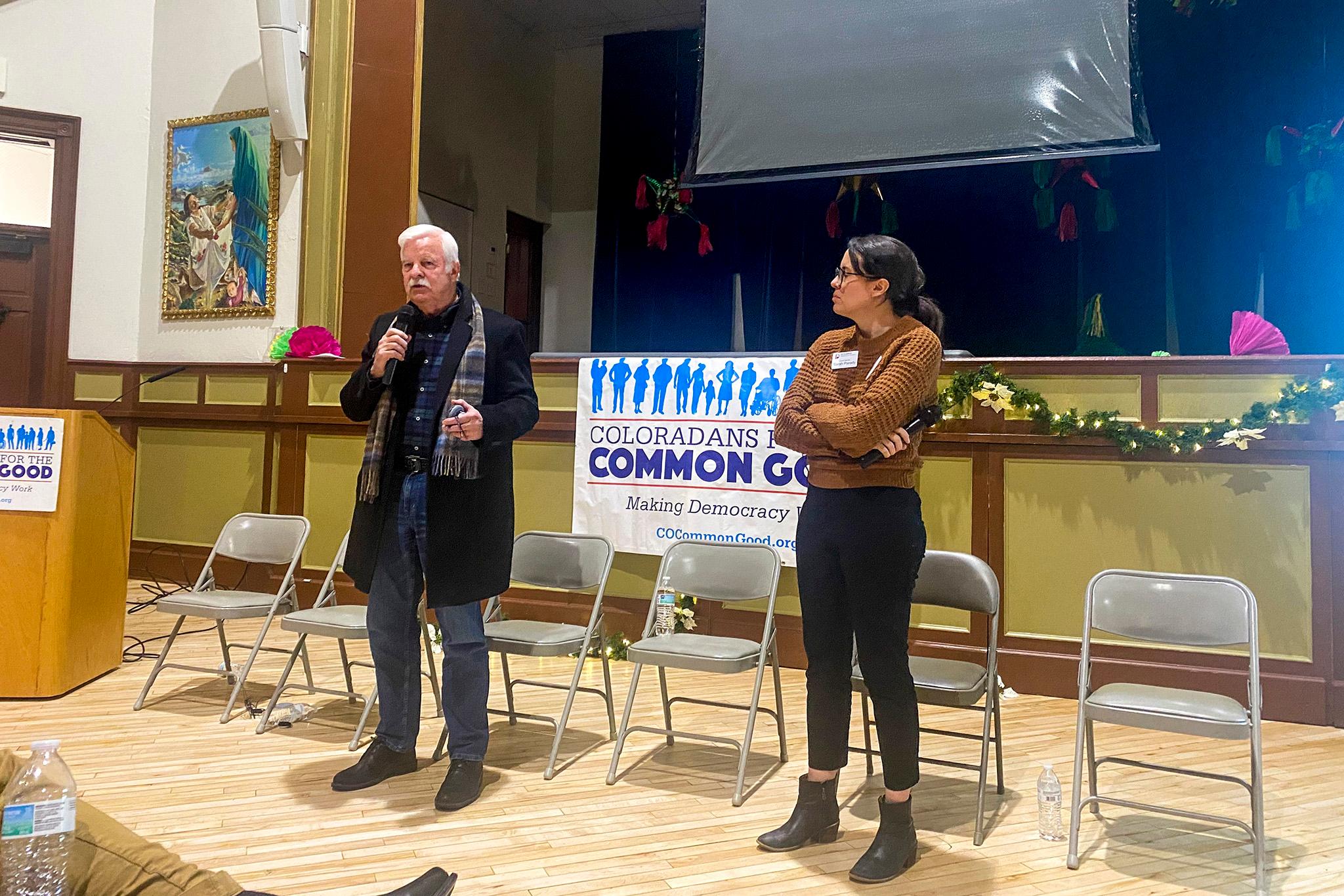On Wednesday night, a group of Denver workers, union members, labor leaders and city staff packed a room at the Society of St. Vincent de Paul building to share stories of wage theft.
Carmelina Venegas talked about an employer failing to pay her after she completed a cleaning job.
"I thought, 'Why is this happening to me?'" she said in Spanish. "It's not fair that they take advantage of us .... But we have to continue fighting to continue obtaining protections ... so that this does not continue to happen."
More than a dozen people in the room raised their hands when asked if they had experienced wage theft. Dozens more said they had worried about making rent and putting food on the table or had worked under unsafe conditions.
While Denver won a record amount of money for victims of wage theft in 2023, labor leaders suspect there is a lot more money out there to recover, and now they've got a new plan to do it.
On Wednesday, they met to discuss potential city legislation that would restore subpoena power to the city Auditor's Office, with the goal of strengthening city power to go after employers accused of wage theft.
The group that met Wednesday included members from the workers rights group Centro de los Trabajadores Colorado -- also known as Centro Humanitario -- and the organization Coloradans for the Common Good, along with staff from the Denver Auditor's Office, Councilmember Sarah Parady and members of other local unions.
"We want to become an institution that protects you and fulfills you and builds power for you so you can have a life with dignity, so they don't abuse you, so you have good salaries," said Mayra Juarez-Denis, executive director of Centro Humanitario.

The potential bill would be the second targeting wage theft in the past year.
In early 2023, City Council passed an ordinance strengthening worker protections against wage theft. That bill allowed complaints to go straight to the auditor for investigation, rather than through the courts, speeding up the process and increasing accessibility for some workers. It also expanded protections to include independent contractors, so that employers could not mis-classify workers to avoid pay or benefits, and it allowed the office to take complaints up the chain of command on a job if a sub-contractor couldn't pay.
That bill played a role in the city recovering more than $2 million for workers in 2023, a record far surpassing 2022's approximate $1.1 million. Denver also closed 100 more cases this year compared to 2022.
But worker advocates and the Auditor's Office say they can do a lot more with subpoena power, which would let them get payrolls, employee lists and other information to more aggressively target wage theft. Denver Labor Executive Director Matthew Fritz-Mauer, a member of the Auditor's Office, said that subpoena power could help his office find other victims of wage theft from the same employer, rather than just pursuing a case for a specific person.
"We know at Denver Labor that it's rarely just one person," he said. "When one person isn't being paid minimum wage or overtime, it's unlikely that their coworkers are."
But there's a history of city drama over subpoena power in the Auditor's Office.
In 2021, City Council passed a law granting subpoena power to the Auditor's Office at the request of Auditor Tim O'Brien. At the time, the move faced pushback from business groups like the Denver Metro Chamber of Commerce and the Downtown Denver Partnership, which also had concerns about the 2023 bill.
But in March 2022, O'Brien's office sued the city over an amendment to that law giving departments being audited the option to require on-site access to proprietary and confidential documents. It was an amendment added by council members who were concerned that the subpoena power was too broad. O'Brien said that requirement was restricting his office's work. A few weeks later, City Council repealed the powers entirely, claiming the lawsuit would prove too costly to the city.
"I and many other council members are anxious to provide subpoena authority to the Auditor for wage theft investigations," said Councilmember Kevin Flynn, who was involved with the 2021 legislation. "The conflict in 2021 had nothing to do with that, but rather with a protracted conflict over secure handling of confidential and proprietary information during performance audits involving entities with city contracts. I'm hopeful we can find the path this time around without the stalemate that occurred two years ago."
Denverite has reached out to the Chamber of Commerce and Downtown Denver Partnership for comment.
Now O'Brien and labor leaders are pushing for that power to return.
"What we're looking for is the tools, specifically the subpoena power, to have in our tool chest, in order to complete the work we do," O'Brien said Wednesday.
Parady said she plans to bring legislation sometime during the first few months of 2024 that would re-grant the powers to O'Brien's office.
"What we want is for employers to learn that they can't get away with this," Parady said. "We need our Auditor's Office to be able to go to the employer and say, 'Turn over the information.' Information is power, transparency is power, and collective action is power."
Denverite reporter Isaac Vargas contributed translation reporting on this story.
Editor's note: This article was updated to include comment from Councilmember Kevin Flynn.












